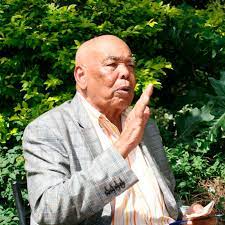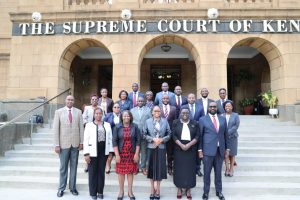The police the world over, have been on the receiving end of persistent negative public perception. For instance, the US, by far a more technologically advanced jurisdiction than ours, with arguably some of the best policing techniques, is still grappling with a persistent perception problem of police brutality especially targeted against the black community. In many other jurisdictions, police units have been accused of colluding with elements of organized crime to engage in the trafficking of drugs, people, and also the proliferation of arms and weapons. Further to this, police units globally have been accused of being among the corrupt institutions in many jurisdictions.
These persisting problems have necessitated the institution of police reforms in many countries, including ours. Indeed, there has been a need to address various challenges touching on many aspects of the police including operational independence from political interference, accountability, police-civilian relations, police welfare and modern policing approaches.
Granted, as our societies continue to become more complex, so is the challenge of policing. In the midst of growing challenges such as evolving national threats, advancements in technology, and a younger, restless demographic that’s growing more anxious amid a pandemic that’s robbed many of their jobs and loved ones, policing can be a nation’s worst nightmare if not carefully checked.
As is with other institutions, it is imperative that the police evolves with the modern world, coming up with innovative ways to carry out their mandate in a more progressive society grappling with many emerging challenges. I opine that the adoption of community, solution-oriented and intelligence-led policing that relies on technological advancements may be the key to our problems. In his book ‘Handbook of Policing, Tim Newburn posits that community policing approaches need to evolve beyond reactive methods that rely on case by case scenarios and emergencies as they arise, to alternative models that are based on overarching objectives and strategy that transcends coping with emerging situations.
This calls for deep cultural change, and the willingness to embrace new technology that rely on information systems as opposed to manual profiling and inappropriate use of strategies like ‘stop and frisk’ in the identification of potential crime situations and running the affairs of the police. Furthermore, there is need to restore the relationship between the police and the civilian populace. I say restore not because this relationship was previously cordial, but because the men and women in blue were once civilians, before they were recruited to serve and protect, however flawed the process may occasionally be. They remain our brothers and sisters, fathers and mothers, uncles and aunties.
Indeed, the importance of this restored relationship can never be overstated. This is because the police across the globe rely on the cooperation of civilians for information about crime in their neighborhoods and also in coming up with innovative solutions to curb crime and other threats to the social order. Therefore, civilians will only be willing to cooperate with the police if they believe that these men and women in blue share the same objectives of a better community.
For a start, the police need to be visible in our communities – ‘mtaani’. Findings by the US Department of Justice that ring true even for our Kenyan reality, reveal that many people do not interact with the police outside enforcement contexts. Often, many Kenyans only interact with the police whenever they have been stopped for a traffic offence, or after breaking Covid-19 regulations. In some parts of this country, like the slum areas even in the capital, many others, especially the youth, only interact with the police during ‘stop and frisk’ situations when they have been negatively profiled as potential criminals. The persisting perception among the populace therefore, is that a police officer is that gun-wielding enemy that’s only waiting for an opportunity to pull the trigger or extort a bribe.
If we start interacting with the police in safer spaces among our communities will help overcome stereotypes. Civilians will finally see that the police are also human, while the police will be able to learn which members of the community are law-abiding citizens and which ones are not, instead of casting blanket suspicion on everyone, and especially young people who may look or dress a certain way. Ultimately, personal interactions between the police and civilians build mutual trust.
The police should see themselves as part of the communities they serve, and the members of the community should willfully invite them to participate in community events and activities like mtaani soccer matches.
Equally important, is the need to receive training on cultural responsiveness, diversity and subconscious bias. That way, the police are likely to inadvertently profile young people negatively because of the way they dress, walk, or how they chose to style the hair on their heads.
Just as significant, is the need to ensure transparency. When a critical incident occurs, police services should be prompt to release as much information as possible, as soon as possible, so that civilians may not wrongly perceive that information is being withheld. Granted, our police service has made significant steps in the right direction on this. The hashtag #EngageTheIG on Twitter every alternate Monday where the Inspector General of Police engages members of the public has helped to break barriers between the police and the public. Equally, the Directorate of Criminal Investigations has been prompt to release timely information on crime prevention and deterrence in the social media, often in captivating prose that can engage even the laziest of readers. Furthermore, the restaurants within the DCI HQ along Kiambu Road that is open to members of the public is also a commendable initiative that has the potential to foster mutual trust between the public and the police.
As we endeavor to progress towards a better society, with more progressive policing methods, perhaps, as part of police housing reforms, we can also dare to imagine a situation where the police live within the communities they serve, as our brothers and sisters. Eventually, even our kids can aspire to be police officers, not so that they can wield power over their communities, because of a restored pride in the service.
Is it possible?
This article also first appeared on www.latebloomer.co.ke







More Stories
Let’s talk policing
How young people can rise beyond social injustice.
Opinion: Why ‘the system’ might not make you president.